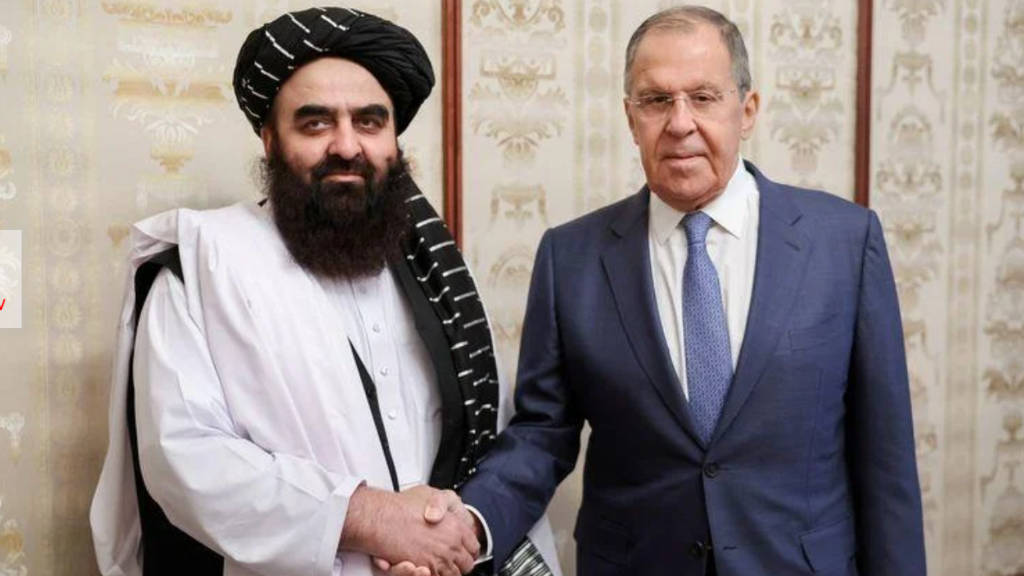Russia’s Foreign Minister, Sergei Lavrov and the acting Afghan Foreign Minister, Amir Khan Muttaqi have discussed trade and financial settlement processes in Russia-Afghani trade as well as plans to intensify trade and economic cooperation between the two countries, including in the energy sector, the Russian Foreign Ministry has said.
Lavrov and Muttaqi met on the sidelines of the sixth session of the Moscow Format Consultations on Afghanistan. During the meeting, the parties discussed Afghanistan settlement problems and bilateral cooperation between Moscow and Kabul. They highlighted Russia’s and Afghanistan’s mutual interest in maintaining trusting political relations and stepping up mutually beneficial trade and economic cooperation, with a special emphasis placed on exploring projects in the energy and agriculture sectors.
Lavrov and Muttaqi reaffirmed the leading role of regional negotiating mechanisms on Afghanistan, primarily the Moscow Format Consultations. Concerns were raised about opium production, security, and education in addition to humanitarian affairs.
Russia launched the Moscow Format Consultations in 2017, and it has since become a regular platform for discussion of challenges facing Afghanistan. Special representatives and senior officials from China, India, Iran, Kazakhstan, Kyrgyzstan, Pakistan, Tajikistan, Turkmenistan, and Uzbekistan will attend the gathering.
Russia has been dealing with the lack of infrastructure and security issues, most notably within the ‘Quartet’ – a grouping of Russia, Iran, China and Pakistan. They recently met in New York to discuss Afghani reconstruction.
Russia-Afghanistan bilateral trade has been improving. According to the Federal Customs Service of Russia, trade and economic relations between Russia and Afghanistan showed significant growth last year, reaching just over US$1 billion, 25% higher than the same period in 2022.
The main Russian exports consisted of petroleum products, wheat, and agricultural machinery, while Afghanistan mainly supplied dried fruits, textiles, and carpets.
Amid this positive dynamic, Russia has set ambitious goals for further increasing economic cooperation with Afghanistan. According to Rustam Khabibullin, head of the Russian Business Center in Afghanistan, there are plans to increase bilateral trade turnover to US$3 billion by 2025 and to US$10 billion by 2030. Key to those numbers though are significant energy agreements. Energy in Afghanistan is provided by hydropower, fossil fuels and solar power. Currently, less than 50% of Afghanistan’s population has access to electricity.
China will be investing into the infrastructure sector as well – Afghanistan recently became a signatory to the Belt & Road Initiative, with the massive China-Pakistan Economic Corridor, which has seen significant road and rail developments in Pakistan, now being extended into Afghanistan.
In a further development, Moscow has removed the ruling Taliban from its terrorist status, paving the way for Moscow to formally recognise the Taliban as the official government of Afghanistan.
Further Reading
Stabilizing Afghanistan: Russia’s New Opportunity

 Русский
Русский













